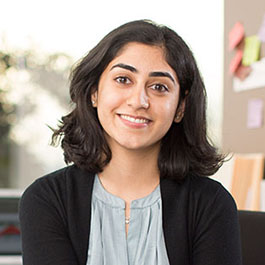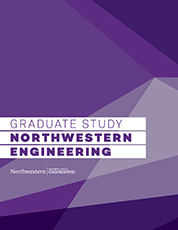Priya RavalUser Experience Design Lead, Proteus Digital Health

Alumni Interview
"The Service Design Studio class was valuable in teaching me how to map out stakeholder journeys and how stakeholders interact with various touchpoints within the service offering. I continue to utilize the tools I gained in that class to make sense of the complexities within healthcare – an industry that has numerous stakeholders whose individual journeys are complex in and of themselves."
When you started EDI, did you know what industry you wanted to work in or were you still exploring?
I have always had a passion for the healthcare space, and even as a kid I knew I wanted to do something that would help people. However, my path to realizing and achieving this in my education and career took quite a few twists and turns. After completing my undergraduate degree in Bioengineering from UC San Diego, I worked for a global medical device company. As a manufacturing engineer for this company, I felt very distant from our end users – the patients and healthcare providers who were interacting with our product. It was this experience that motivated me to join the EDI program. My decision to continue to focus on healthcare during my time in the program largely stemmed from the fact that there is an acute need to shake up our archaic healthcare system and the incredible opportunities available to drive change.
Tell us about an EDI course that made an impact on you.
There are two classes the EDI program that have had an impact on my career. I enjoyed the hands-on, client-based nature of the Product Design Studio class that was offered our first quarter of the program. This product design class was where I was first formally introduced to the entire design process. There was a heavy emphasis that term on Design Research, and it was how I came to realize my interest in utilizing various research techniques to better understand user needs, behaviors, and motivations when designing a product in the physical space. The Service Design Studio class was also valuable in teaching me how to map out stakeholder journeys and how stakeholders interact with various touchpoints within the service offering. I continue to utilize the tools I gained in that class to make sense of the complexities within healthcare – an industry that has numerous stakeholders whose individual journeys are complex in and of themselves. Both courses have served as strong foundations for my work and career. I've been able to utilize the skills I learned in these classes to formulate insights that inform my company's strategy in creating new product features that not only meet the needs of our various stakeholders who interact with our service but that also integrate well in the context of various healthcare environments.
Is there anyone you worked with during EDI that you consider a mentor?
The saying, "It takes a village to raise a child" comes to mind in response to this question. There isn't just one person in the EDI program that I considered to a mentor but rather many members of the EDI community of faculty, professors, and thesis mentors. It is a genuine team of educators and professionals who work together to ensure their students grow into thoughtful and successful design professionals.
How did you decide on your EDI thesis project?
It was personal. During my time in the EDI program, one of my family members was diagnosed with late stage dementia. I started volunteering my time at the dementia care facility close to campus and became particularly interested in the toll this disease takes on members of the family and caregivers of those diagnosed with dementia. Speaking with these amazing caregivers influenced my decision to make this my thesis project. I started broad in understanding the dementia space from a caregiver perspective, and using the design process, ended up with a product focusing on facilitating communication between primary and secondary caregivers.
What advice do you have for an EDI student interested in working in your industry?
Get out of your comfort zone! It's easy to gravitate toward projects that play to your strengths, but make an effort to build new skill sets and learn new tools. This is the time to do it. Take the time to learn from your peers. EDI is unique in that those who attend the program have very different talents and levels of experience or expertise. Learning from your peers can be just as valuable as learning in the classroom. Choose an approachable thesis project. Picking a thesis project in the healthcare space can be tough due to possible IRB requirements and lack of access to certain patient populations. Pick a thesis project that will allow you to spend time focusing on the process and the output instead of struggling to access your users. Make networking a priority. Attend networking events, reach out to EDI professors and alumni. I've found that most people are very open to speaking to students, and I've personally had the most success in my job search when reaching out to my network. Select an internship in the industry you're interested in joining. This may seem obvious, but if you're interested in an industry like healthcare, it will help to show that you have experience designing products in a regulated environment. Be open to contract positions when you graduate. It's a great way to gain experience at relatively low risk, expand your network, and evaluate whether the role and company are the right fit for you and your future.

